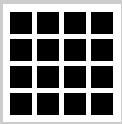Fun fact: Why is it that things related to the Dutch have few good connotations in English?
In the 17th century, the small European country of Holland, due to commercial and territorial sea disputes, fought three consecutive wars with Britain, historically known as the "Anglo-Dutch Wars." These wars ended with the victory of Britain, which later became the "British Empire on which the sun never sets," while the small country of Holland was defeated. Some arrogant British people, feeling smug about their victory, went out of their way to mock and belittle the defeated Dutch, coining a wide variety of derogatory terms to slander and insult them. These words were very popular at the time and have been passed down to this day, becoming English idioms. The British looked down on the Dutch, almost using every bad word they could think of to describe them. They believed the Dutch were uncouth, prone to drunkenness, foolishly brave, too noisy, irritable, fond of scolding others, unrealistic, weak, easily manipulated, and that the Dutch language was vulgar and obscene.
As a result, the word "Dutch" (meaning "of or relating to the Netherlands or its people") in English is often used pejoratively, and most of the idioms formed with it carry negative connotations. For example:



